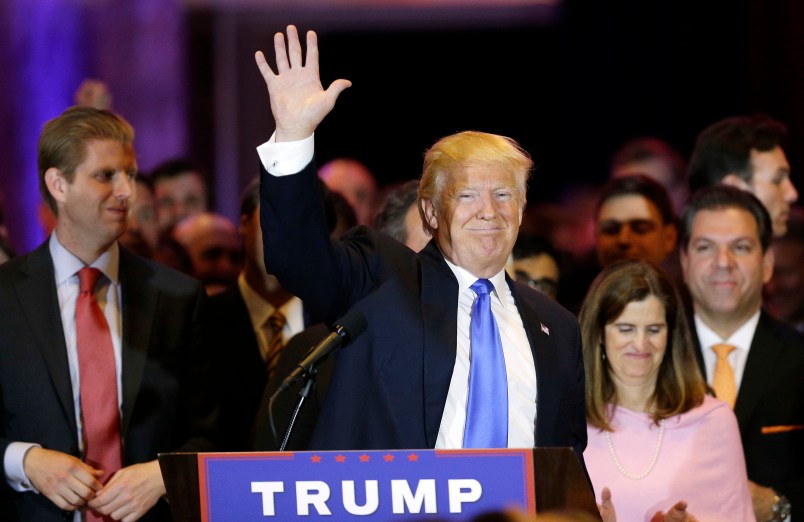There are many things you could say about Donald Trump’s foreign policy speech. At a minimum we can recognize that it is a restatement of Trump’s foreign policy ideas stripped of references to Mexican rapists and other shocking asides. But here’s the one thing I think is most salient.
Trump is proposing making aggressive new demands of virtually every country in the world – whether that’s countries in Europe (who are part of NATO), China, Japan, Mexico, Russia or in less high profile ways virtually every other country in the world. This might make sense for Russia, perhaps China, maybe Europe. It can’t make sense to do it with everyone at once.
And here is what is key.
There’s no real strategy behind Trump’s arguments – no new set of alliances or regional focus, no emphasis on trade as opposed to military strength of vice versa. At least there is no strategy in terms foreign policy professionals would recognize (which, in fairness, is not necessarily a bad thing.) With basically every other country the demand is for respect and fairness because under the current rules we are humiliated and cheated.
This is precisely the same policy, posture and strategy Trump brings to America itself: white identity politics aimed at taking back what other rising or new groups in American society have taken away from the guys who used to be at the top of the heap. It is more or less the identical vision, only with the humiliated party looking to set things right transposed from within American society to the globe.
There are many people who think America has gotten shortchanged in global and bilateral trade agreements. But to the extent that this is true it is not a matter of poor US negotiation or weakness. It’s that the US has negotiated deals that benefit large corporations at the expense of the majority of Americans who’ve seen their wages stagnate for decades. Just how much of US trade policy has been about selling out US workers versus a pragmatic effort to adjust to a world that is dramatically different from the world of the mid-20th century is a complex question that I’ll leave aside for the moment. What is relevant for present purposes is that the US remains the dominant military power literally everywhere on the planet and far and away the world’s dominant economy. It’s not a big deal when weak countries see themselves as humiliated and abused. Often they are humiliated and abused. But even if they’re not, by definition, they are weak. So there’s little mischief they can do based on their distorted vision of their position in the world. It can be quite dangerous for all involved when a hugely powerful country, actually the most economically and militarily powerful country in the world, falls under the spell of these kinds of delusions.
Seeing America as humiliated and abused by foreigners is no more healthy, productive or based in reality than the idea that middle aged whites are under the heel of minorities and millennials. It’s all of a piece. Most people will get tripped up by the scaffolding of foreign policy talk around this basic worldview. That’s mainly beside the point. Trumpism at abroad is basically identical to Trumpism at home. We shouldn’t fool ourselves into thinking that will be any less toxic abroad than it is at home.








